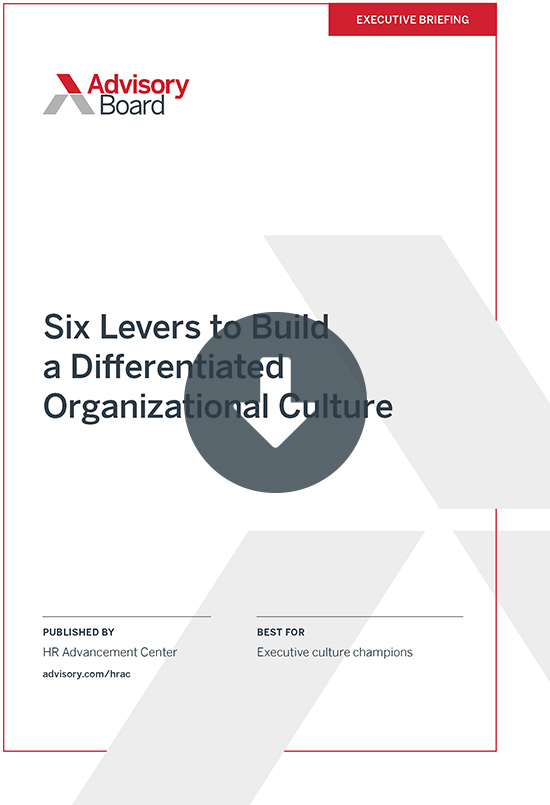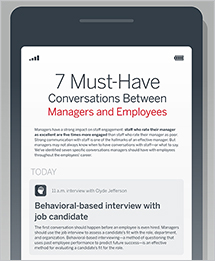Auto logout in seconds.
Continue LogoutWhen employees refrain from voicing their ideas and concerns, many managers assume their staffers just aren't the sort of people who speak up—but a study suggests the right work environment can help even the shyest employees express their opinions, Hemant Kakkar and Subra Tangirala write in the Harvard Business Review.
Download the manager’s guide to engaging staff
The two theories for why employees don't speak up
In the article, Kakkar, a Ph.D. candidate at the London Business School, and Tangirala, a professor at the University of Maryland's Robert H. Smith School of Business, say that "[c]ompanies benefit when employees speak up."
But when employees don't share their views, managers might be inclined to blame either of two factors: the employees' personalities or the workplace environment.
Kakkar and Tangirala explain that the "personality perspective" implies that some employees are simply too shy or introverted to assert their opinions, while the "situational perspective" indicates that some work environments discourage employees from speaking out.
To get a better understanding of which perspective plays a larger role in an employee's silence, they surveyed nearly 300 employees and supervisors at a manufacturing plant in Malaysia. They asked about employees' "approach orientation," or their natural inclination toward voicing their opinion, as well as about the situational norms associated with the manufacturing plant.
Then, the researchers validated those responses by asking supervisors to rate how often each employee speaks up.
Is the company or the employee to blame?
Their findings, which were published in the Journal of Applied Psychology, found that—unsurprisingly—employees who have a high approach orientation, or propensity toward speaking up, asserted their opinions more often others. Similarly, the employees who viewed their work environment as receptive of employee ideas were more likely to speak up.
However, the researchers added, "we found that strong environmental norms could override the influence of personality on employees' willingness to speak up at work."
In other words, even if an employee was naturally shy about offering feedback, they nonetheless spoke up "when they thought it was strongly expected of them at work." The reverse was also true: Even employees who were naturally inclined to voice their opinions were "less likely to speak up with concerns when they thought it was discouraged or punished," Kakkar and Tangirala write.
Further, the work environment influenced the type of feedback employees offered. For example, Kakkar and Tangirala write, when a work environment stressed the importance of identifying threats and safety issues, employees were more likely to come forward with safety violations or breaches in operations. When the environment called for innovation, employees would come forward with ideas for reworking operations and processes.
What can managers do to foster employee feedback
According to Kakkar and Tangirala, their findings suggest "that work norms can not only encourage all employees to speak up but also focus their voice on specific issues confronting the organization."
For managers looking to foster innovation, Kakkar and Tangirala note that it's important "to create an environment that specifically encourages employees to come up with ideas that can offer new opportunities for success." Further, those "working in contexts where reliability is critical would do well to specifically create an environment where employees are focused on forecasting and speaking up about potential threats," Kakkar and Tangirala write.
But regardless of your workplace setting, Kakkar and Tangirala conclude, "[I]f you want your employees to be more vocal and contribute ideas and opinions, you should actively encourage this behavior and reward those who do it" (Kakkar/Tangirala, Harvard Business Review, 11/06/18).
Next, read our how-to guides for being a better manager
You can't succeed without a qualified and motivated staff. Download our "Manager's Guide" series to learn best practices for conducting interviews, onboarding new hires, and conducting performance reviews.
Don't miss out on the latest Advisory Board insights
Create your free account to access 1 resource, including the latest research and webinars.
Want access without creating an account?
You have 1 free members-only resource remaining this month.
1 free members-only resources remaining
1 free members-only resources remaining
You've reached your limit of free insights
Become a member to access all of Advisory Board's resources, events, and experts
Never miss out on the latest innovative health care content tailored to you.
Benefits include:
You've reached your limit of free insights
Become a member to access all of Advisory Board's resources, events, and experts
Never miss out on the latest innovative health care content tailored to you.
Benefits include:
This content is available through your Curated Research partnership with Advisory Board. Click on ‘view this resource’ to read the full piece
Email ask@advisory.com to learn more
Click on ‘Become a Member’ to learn about the benefits of a Full-Access partnership with Advisory Board
Never miss out on the latest innovative health care content tailored to you.
Benefits Include:
This is for members only. Learn more.
Click on ‘Become a Member’ to learn about the benefits of a Full-Access partnership with Advisory Board
Never miss out on the latest innovative health care content tailored to you.


